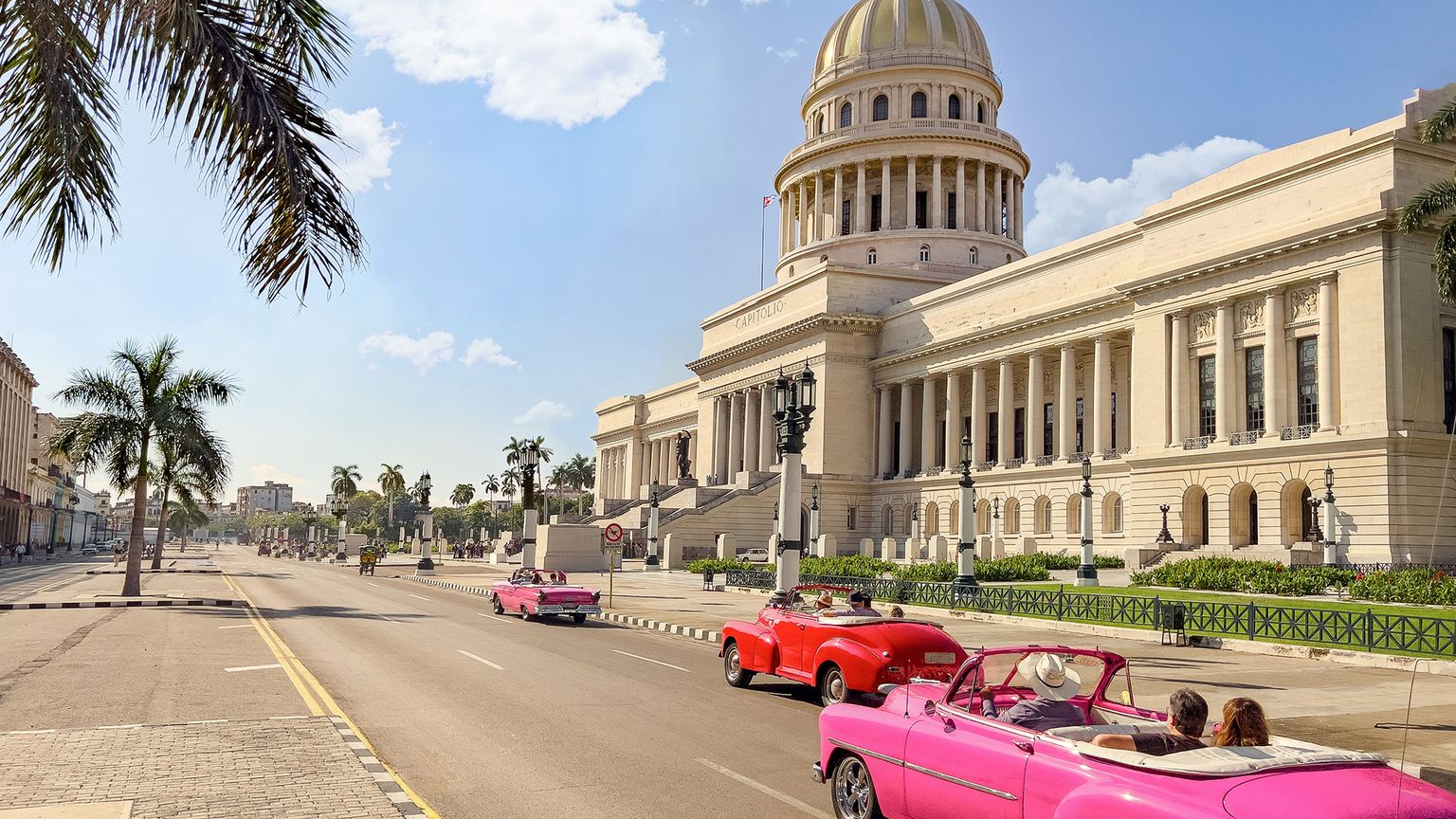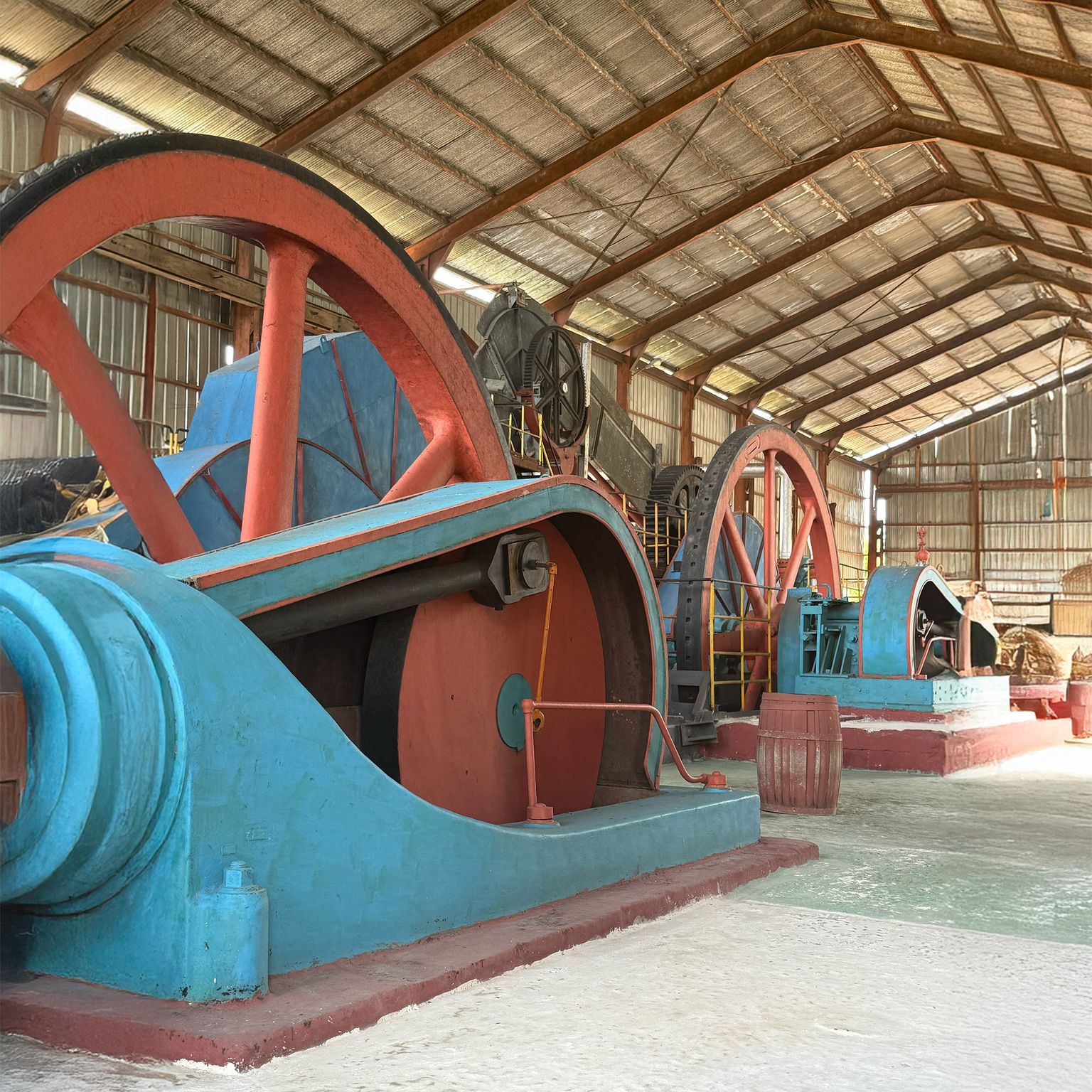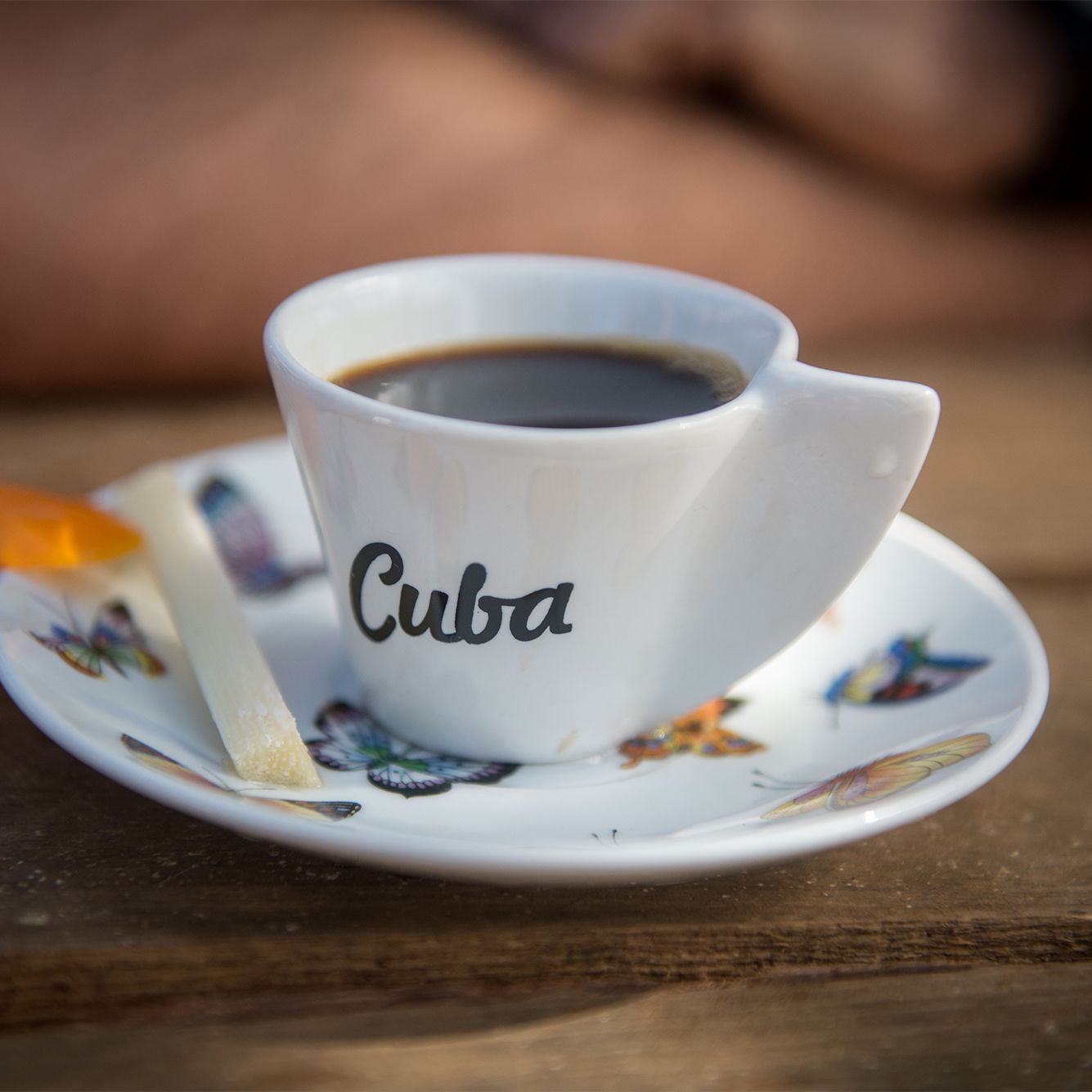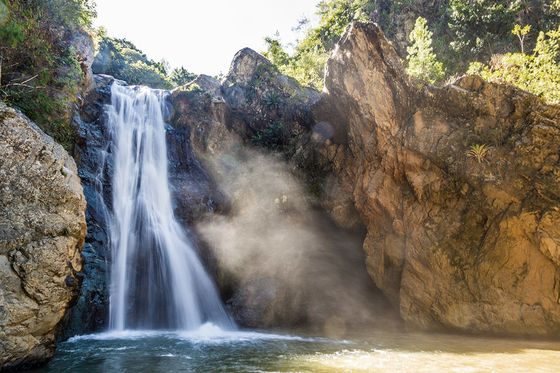Cuba tours
For many, this Caribbean country remains a conundrum, a place cloaked by simmering geopolitical tensions. But along the Malecon of Havana, on the rural roads of the Escambray Mountains, and at every turn on our Cuba tour, you’ll encounter the nation’s true personality—in its polyrhythmic music, cozy cuisine, and welcoming people.
)

What to know before you go
POPULATION
Clocking in at a shade under 11 million, Cuba’s population ranks third among countries in the Caribbean. More than 80% of Cubans live in urban areas—and roughly one in five live in the Havana metropolitan area.
CAPITAL
Once prized as the “Key to the New World,” Havana was founded in 1514 and quickly became the springboard for Spanish ambition in the region. Ships loaded with treasure stopped there en route to Europe; conquistadors set sail from there to invade the Americas. Today, the city is a mix of colonial architecture, stoic fortresses, and brutalist landmarks—all a product of its past, and all spotted on our tour to Cuba.
CULTURAL QUICK TAKE
To most, the country’s cocktail culture centers on minty mojitos and tart daiquiris. But have you tried a canchanchara? First created in the southern city of Trinidad, this dram contains lime juice, honey, and Cuban aguardiente—the sweet-yet-fiery first distillate in the rum-making process. Order one, served in a squat clay cup, and enjoy it with a “salud!”
WHAT TO GO FOR
Classic cars sharing the road with Soviet-era machinery and horse-drawn carriages. Cobbled colonial streets running past weathered buildings and five-star hotels. Seeing these contradictions can shock the system, but the best Cuba tours don’t shy from them.
UNIQUE EXPERIENCES ON TOUR
See the desk where Ernest Hemingway wrote “The Old Man and the Sea” at Finca Vigia; hop aboard a bicitaxi for a street-level look at the town of Remedios; visit a cigar-rolling plant in Havana and watch as workers let their fingers fly over strips of dried tobacco leaves; and more on our Cuba People & Culture: Havana, Trinidad & Cienfuegos tour.

Cuba People & Culture: Havana, Trinidad & Cienfuegos
From the infield of a baseball stadium in Remedios to an artist’s studio in Trinidad, from Jose Marti Park in Cienfuegos to the Plaza of the Revolution in Havana, broaden your knowledge of the Pearl of the Antilles the best way we know how—by visiting it yourself.
Signature experiences for your memory vault. Why don’t you...

Walk between sleeping giants at an old sugar mill
Tour the Marcelo Salado Sugar Industry Museum, a glass of guarapo—sugar cane juice—in hand. (If you’re lucky, you might even get to ride a restored steam train!)
)
Step up to the plate and swing for the fences
Meet baseball coaches in Remedios to discuss the state of sport in Cuba. Then, join them on the diamond for a friendly game, alternating between hitting and fielding.

Taste what makes Cuban coffee special
Visit a coffee farm in the mountains outside Trinidad and sit down to a homemade lunch—complete with a cuppa crafted from beans grown, roasted, and ground on-site.
)
Hear the other side of the Bay of Pigs story
Enter the Giron Museum, passing the tanks and fighter planes parked outside, and ponder exhibits that relate the events of the American-backed invasion through Cuban eyes.
Let’s go island- (and country-) hopping
Puerto Rico and the Dominican Republic. Costa Rica and Panama. Branch out to the rest of the Caribbean—and Central America beyond—with these guided group tours.

























